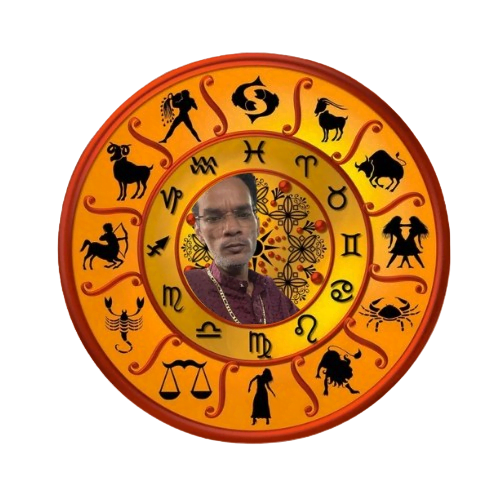4 Reasons Not To Be “Spiritual”
The term “spiritual” is prevalent in contemporary discourse, but its effectiveness in conveying the depth of certain practices and beliefs is increasingly questioned. The term often feels superficial, lacking the robustness needed to describe practices deeply rooted in culture, history, and personal experience. This article explores why the term “spiritual” might be insufficient and proposes alternative frameworks for understanding profound practices. We will examine the term’s colonial implications, its inherent vagueness, and its tendency to perpetuate harmful binaries. Additionally, we will discuss the value of using terms like “embodied enchantment” and “relatedness” to offer a more accurate and respectful depiction of these practices.
The Limitations and Ambiguities of “Spiritual”

The Colonial Implications of Spirituality
The word “spiritual” is often used to describe practices and beliefs that are inherently complex and rooted in specific cultural contexts. However, its use can inadvertently impose a colonial perspective on these traditions. David Delgado Shorter, a scholar in Indigenous Studies, argues that labeling Indigenous practices as “spiritual” reflects a colonial mindset that oversimplifies and distorts these traditions. This colonial perspective stems from a history of marginalization and misrepresentation, where Indigenous practices are reduced to mere spiritual experiences rather than being understood in their full cultural and historical context.
The term “spiritual” is a product of Western colonialism and the dominant cultural narratives that have historically sought to control and exploit other cultures. By framing Indigenous practices within the confines of Western spirituality, we risk perpetuating the same colonial dynamics that have historically sought to undermine these practices.

Vagueness and Overgeneralization
Another significant issue with the term “spiritual” is its inherent vagueness. The term can refer to a wide range of concepts, from “vital essence” to “supernatural” phenomena, and even “emotional states”. This broad applicability can render the term almost meaningless when used to describe specific practices or traditions.
In Western contexts, the term “spiritual” often implies a dichotomy between spirit and matter, sacred and profane, or intellectual and physical. This binary framework can obscure the true nature of practices that are deeply integrated into the fabric of daily life and culture. By relying on such a vague term, we risk overlooking the rich, nuanced aspects of these practices.
Perpetuation of Harmful Binaries
The Western concept of spirit is often contrasted with matter, leading to a hierarchy where the spiritual is seen as superior to the physical. This binary opposition reinforces a cultural tendency to prioritize intellectual and abstract realms over the physical and material. Such hierarchies can perpetuate the idea that the material world is less important or even disposable.
This hierarchical view is not only reductive but also harmful. It contributes to a broader cultural pattern where aspects of life that are deemed “material” are exploited or disregarded. This perspective aligns with colonial attitudes that have historically devalued the material and cultural practices of marginalized communities.
Witchcraft vs. Spirituality: A More Grounded Framework

Understanding Witchcraft
In contrast to the abstract and hierarchical nature of spirituality, witchcraft offers a more grounded and tangible framework. Witchcraft is often characterized by its deep connection to the physical world and its emphasis on embodiment. Practices associated with witchcraft frequently involve direct engagement with nature and the elements, such as mud, fire, and wind.
Witchcraft challenges the notion of a dichotomy between spirit and matter. Instead, it embraces the idea that the spiritual and the material are interconnected and mutually influential. This approach provides a more holistic understanding of existence, where the physical and spiritual realms are seen as inseparable.
The Concept of Embodiment
Embodiment is a central theme in witchcraft and offers a valuable alternative to the term “spiritual”. Rather than separating the spiritual from the physical, embodiment emphasizes the integration of both realms. This perspective highlights the importance of direct experience and interaction with the world around us.
By focusing on embodied practices, witchcraft provides a framework for understanding how the spiritual and material aspects of life are intertwined. This approach encourages a more practical and engaged way of experiencing and understanding the world, challenging the superficiality often associated with traditional spiritual practices.
Alternative Terminologies for Spiritual Practices
Embodied Enchantment
The term “embodied enchantment” offers a more nuanced and respectful alternative to “spiritual”. It emphasizes the integration of the physical and spiritual realms and reflects a commitment to engaging with the world in a present and participatory manner.
Embodied enchantment conveys a sense of presence and connection that goes beyond the abstract nature of spirituality. It highlights the importance of direct engagement with the world and acknowledges the profound impact of physical experiences on our spiritual understanding.
Relatedness and Interconnectedness
David Delgado Shorter advocates for the use of “relatedness” or the concept of “all my relations” to describe Indigenous practices. This term reflects the interconnectedness of all life and emphasizes the responsibility we have to care for and protect the natural world.
Relatedness challenges the hierarchical view of spirituality by focusing on the web of life and our place within it. It encourages a more inclusive and integrated understanding of spirituality, where all aspects of life are valued and respected.
Revisiting the Concept of Sacredness
Holistic View of Sacredness
The concept of sacredness also requires reevaluation. Traditionally, labeling something as “sacred” implies that other things are profane or less important. This perspective can lead to a dichotomy where certain aspects of life are prioritized over others.
A more holistic view of sacredness recognizes that all aspects of life are interconnected and deserving of respect. By adopting this perspective, we can foster a deeper sense of care and responsibility for the world around us. This approach challenges the notion that certain elements of life are inherently more valuable than others and encourages a more equitable and inclusive understanding of sacredness.
Implications for Modern Practice
In times of social and political upheaval, the concept of spiritual practice can feel disconnected from everyday concerns. However, if we view spirituality as an integral part of our daily lives, our practices become more relevant and actionable.
Addressing global crises, caring for the environment, and nurturing relationships are all aspects of our spiritual practice. By broadening our understanding of spirituality to encompass these actions, we can better integrate our values into our daily lives. This expanded view allows us to see the sacred in ordinary actions and interactions, enhancing our connection to the world.
Living Our Practice

Engaging with Current Issues
Our spiritual practice should reflect our engagement with current social and environmental issues. For instance, addressing crises such as the genocide in Palestine or participating in environmental conservation are integral to our spiritual practice. These actions reflect our commitment to living in alignment with our values and addressing the pressing challenges of our time.
Expanding Our Perspective
By adopting a broader understanding of spiritual practice, we can better integrate our values into our daily lives. This perspective allows us to see the sacred in our actions and interactions, fostering a deeper connection to the world around us. It challenges traditional notions of spirituality and encourages a more inclusive and holistic approach to living our values.
Conclusion
The term “spiritual” often falls short of capturing the depth and complexity of meaningful practices. By exploring alternative frameworks such as witchcraft, embodied enchantment, and relatedness, we gain a more nuanced and respectful understanding of these practices. These perspectives challenge traditional binaries and offer a more integrated approach to spirituality.
Embracing these alternative frameworks allows us to engage with the world in a more grounded and practical way, enhancing our connection to the material and spiritual aspects of life. By broadening our understanding of spirituality, we can foster a deeper sense of care and responsibility for the world around us.
Note:- For more such information join our WhatsApp channel or Telegram channel. Thank you
Category
All Puja Vidhi, All Chalisa, Astrology, Feng Shui Tips, Horoscope, Love Horoscopes, Muhurta, Panchang, Paranormal, Upaya, Unique, Vastu Dosh


